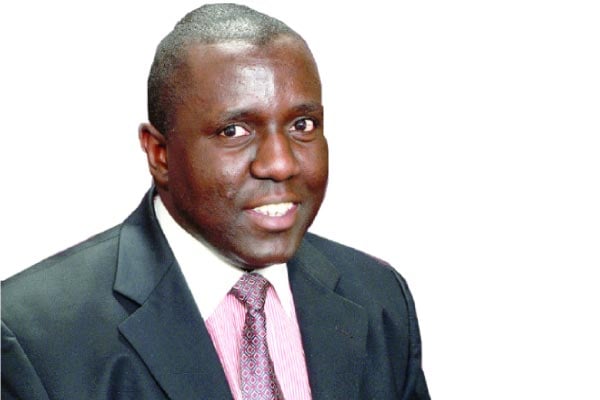Thank you Museveni for sacking the incompetent. Now, please, continue

Combo (L-R): KCCA executive director Dorothy Kisaka, her deputy Eng David Luyimbazi and KCCA director of Public Health Dr Daniel Okello. PHOTOS/ FILE
What you need to know:
- This move demonstrates that there are consequences for failure, and signals a new era of accountability.
President Yoweri Museveni’s decision to dismiss Dorothy Kisaka, the Kampala Capital City Authority (KCCA) Executive Director, her deputy David Luyimbazi, and the Director of Public Health, Dr Daniel Okello, over the tragic Kiteezi landfill collapse, which claimed 35 lives, marks an important turning point in the fight against gross incompetence in public service.
This move demonstrates that there are consequences for failure, and signals a new era of accountability.
The Kiteezi disaster was not an isolated incident; it was a symptom of a much larger problem that has plagued Kampala for years. The city has suffered from extreme mismanagement, and the consequences are clear for all to see. The landfill collapse is merely one part of a bigger picture—just look at the worsening state of the city’s infrastructure. Potholes, once a nuisance, have now grown into craters. They are more than just a headache for drivers; they are symbols of decay, a sign that those responsible for maintaining the city have failed in their most basic duty.
Kampala's traffic jams have become an unmitigated disaster. Roads that should be free-flowing have been turned into parking lots. This isn’t just about inconvenience—it costs the city billions in lost productivity, damages vehicles, and creates health risks due to increased pollution. Every day, Ugandans waste countless hours stuck in gridlock, a problem that could be alleviated if KCCA leadership had properly managed the city's transport infrastructure. Instead, we are left with roads that resemble obstacle courses, with the few attempts at repair barely scratching the surface.
Museveni’s decision to fire these officials is a significant statement, but it should be followed by meaningful legal action. It is not enough for them to be removed from office; they must be held accountable for the lives lost and the city they allowed to fall into disrepair. They oversaw years of neglect, during which time the Kiteezi landfill became a ticking time bomb. The people who died in the collapse deserve more than just administrative action; their families deserve justice, and the people responsible should face the law.
But while we commend Museveni for these actions, there is another area that needs his immediate attention—the parliamentary commissioners who awarded themselves nearly Shs2 billions under the guise of service awards. This act of self-enrichment sets a dangerous precedent, one that could destabilise the integrity of public service and governance in Uganda.
The parliamentary commissioners’ decision to sit in a meeting and allocate themselves these massive payouts was not only a blatant conflict of interest but a violation of the Leadership Code of Conduct. How can public servants, entrusted with the welfare of the nation, justify such decisions when the average Ugandan struggles to afford basic needs? This reckless display of greed undermines the very foundations of leadership, where public office is meant to serve the people, not enrich a few.
Their actions strike at the heart of public trust. If leaders at the highest levels of Parliament can award themselves such astronomical sums without fear of consequence, what message does this send to other public officials?
It suggests that those in positions of power can exploit their offices for personal gain, so long as they have the means to pass it off as legitimate.
The President , and the Inspector General of Government (IGG) should intervene to ensure that those responsible are investigated and held accountable. Moreover, this incident sets a precedent that future commissioners could follow, awarding themselves money or privileges with impunity.
It is a slippery slope that Uganda cannot afford to slide down. If no action is taken, it will signal to all public servants that they, too, can disregard the rules when it suits them. The Leadership Code of Conduct is there for a reason—to prevent exactly this kind of abuse. It should be enforced, not just in words, but in deeds.
In the same way that the KCCA officials’ dismissal signals a long-overdue shift towards accountability, so too should action against the parliamentary commissioners.
The service awards controversy is already spreading, inspiring lower local government officials to manipulate budgets for similar honours. With no repercussions, this trend threatens Uganda's governance fabric. Decisive action is crucial to curb this "virus" to restore integrity and public trust.
Wilfred A. Nshekantebirwe, [email protected]




